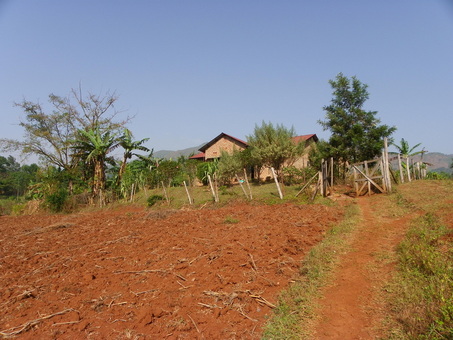
Here is our guest house midway up a rather steep hill
Every morning I wake up between 6:30 and 7:00am. This is done without the aid of technology due to nature's alarm clock: the faithful rooster. Many local villagers keep chickens and have a rooster. So every morning, before the sun rises, we hear the loud and faithful "cock-a-doodle-doo" of the many roosters surrounding us. Carolyn has usually been awake for hours, listening to the chanting or the drum beats through the night. I lie in bed and soon enough the sun pops up. Yes, it literally pops up. Being on the equator, the sunrises and sunsets happen quickly. Within a half hour of first light the sun shines brightly.
Basically, all the guests at the guest house are up by 7:15am. During our stay, there were 7 guests (our family of 4, Sabia, Anna and Tom) along with Barbara, the owner/manager/head Big Boss Lady. The first one up . . .
Basically, all the guests at the guest house are up by 7:15am. During our stay, there were 7 guests (our family of 4, Sabia, Anna and Tom) along with Barbara, the owner/manager/head Big Boss Lady. The first one up . . .
puts water on the burner so everyone has hot water for tea or coffee and then Justine, the guest house cook, arrives to make breakfast for everyone to send them on their way. The house is always bustling at this time and Barbara is often the first to leave with whomever is ready to get to the school before 8:30am.
The school is located about three and a half kilometers from the guest house near the centre of Bududa and at a brisk walk we can get there within thirty or forty minutes. With our bellies full we set off to the school. Rarely do weall leave at the same time but the first group is off by 7:45am. Walking to school is one of the many highlights of the day. During our first week we walk along the main, busy road that most of the villagers take, along with the motorcycle taxi's called "peeki-peeki's". Whenever a peeki-peeki zooms by, a cloud of dust follows. This is not pleasant. Soon after our second week we discover an idyllic route that runs parrallel to the main road on the other side of the river. When we leave the guest house, we set off down a hill, cross the main road and enter into the river valley that is green, lush and full with the sound of the river. Here we follow the river for a while and then come to a foot bridge where we cross and then climb the opposite hill until we arrive at a road that follows the river with zero traffic.
The school is located about three and a half kilometers from the guest house near the centre of Bududa and at a brisk walk we can get there within thirty or forty minutes. With our bellies full we set off to the school. Rarely do weall leave at the same time but the first group is off by 7:45am. Walking to school is one of the many highlights of the day. During our first week we walk along the main, busy road that most of the villagers take, along with the motorcycle taxi's called "peeki-peeki's". Whenever a peeki-peeki zooms by, a cloud of dust follows. This is not pleasant. Soon after our second week we discover an idyllic route that runs parrallel to the main road on the other side of the river. When we leave the guest house, we set off down a hill, cross the main road and enter into the river valley that is green, lush and full with the sound of the river. Here we follow the river for a while and then come to a foot bridge where we cross and then climb the opposite hill until we arrive at a road that follows the river with zero traffic.
It is absolutely beautiful. As we walk we can follow the meandering river below with all its greenery and colour. Along the road the occasional family mud hut appears surrounded by fields filled with either sugercane or banana trees. Whenever we pass a home with small children we immediately hear them call out "Mzungu, how are you!" and we reply "I am fine. How are you?" Mzungu means "white person" in Swahili.
Finally we arrive at the school where we always receive warm welcomes and handshakes from the staff. The days at school are as busy as one wants to make them. Birch and I help with a lot of the physical work, from fetching water to carrying bricks to digging a trench before the rainy season begins. Other activities include helping in the classrooms, painting a map of Africa on the wall, speaking English with the students or giving a presentation.
At 10:30am tea and mandazi (a type of doughnut) is served and we all sit with the staff and enjoy our break. After break we continue with our work until lunchtime at 1:00pm. Lunch basically consists of beans, rice, posho (corn flour paste) and cabbage or greens. This is the basic lunch that is served every day at the school, basic yet substantial. The day continues until 4:30pm when classes finish. We often leave a little earlier and either walk back or ride on the back of a peeki-peeki to the guest house.
At 10:30am tea and mandazi (a type of doughnut) is served and we all sit with the staff and enjoy our break. After break we continue with our work until lunchtime at 1:00pm. Lunch basically consists of beans, rice, posho (corn flour paste) and cabbage or greens. This is the basic lunch that is served every day at the school, basic yet substantial. The day continues until 4:30pm when classes finish. We often leave a little earlier and either walk back or ride on the back of a peeki-peeki to the guest house.
When we get back to the guest house, we have a little down time for ourselves where we might read with a cup of tea. Birch downs a huge glass of water and hangs out with the younger volunteers. Sometimes he chops vegetables, or papayas and pineapple, which we eat every night. Allegra is swarmed by giggling kids who want piggy-back rides. Theodore and Penelope, two gorgeous crested cranes, fly in to their perch at the top of a giant eucalyptus tree. Someone sets the table while another brings the laundry in from the line. The sun goes down all too soon. We eat by candlelight. There are a million stars. We crawl under the mosquito nets early and use headlamps to read.
Such is a typical day in Bududa.
John and Carolyn
Such is a typical day in Bududa.
John and Carolyn
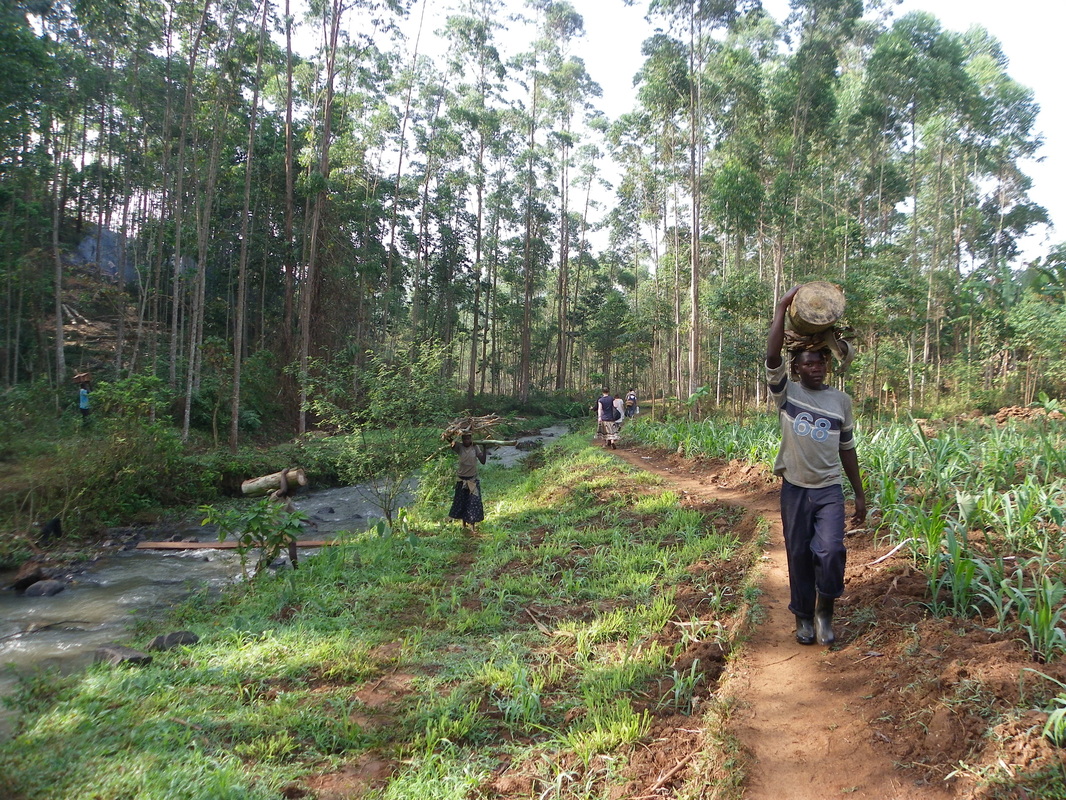
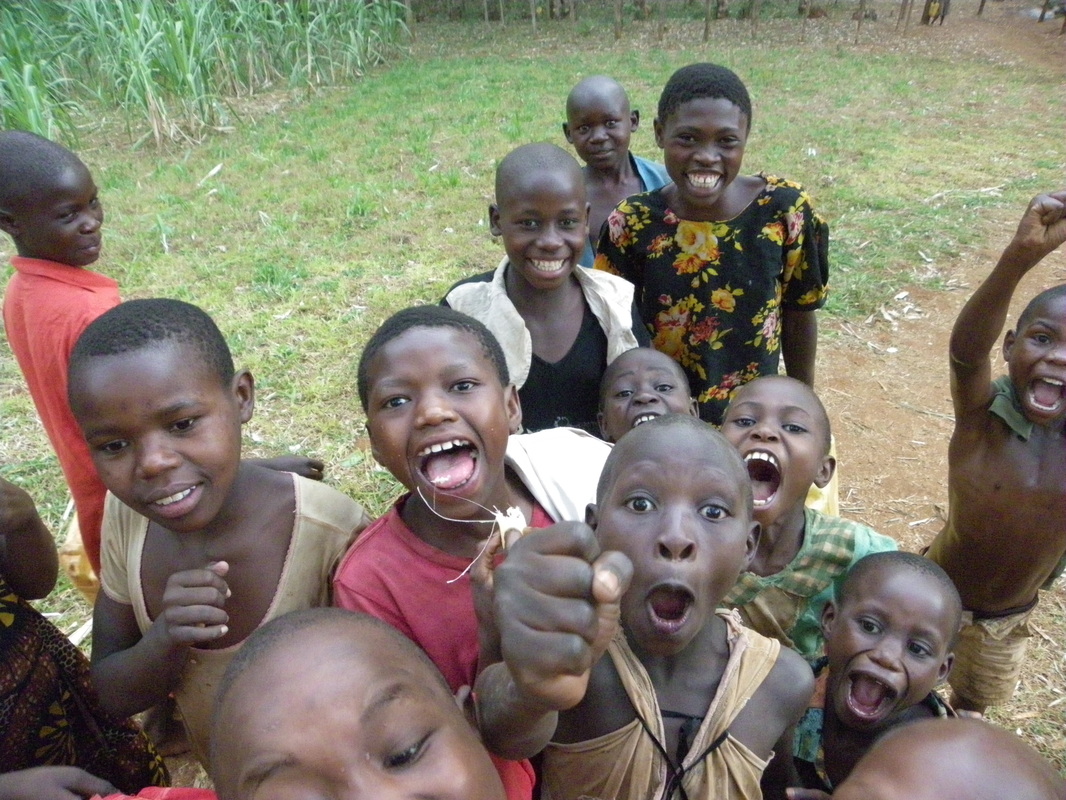
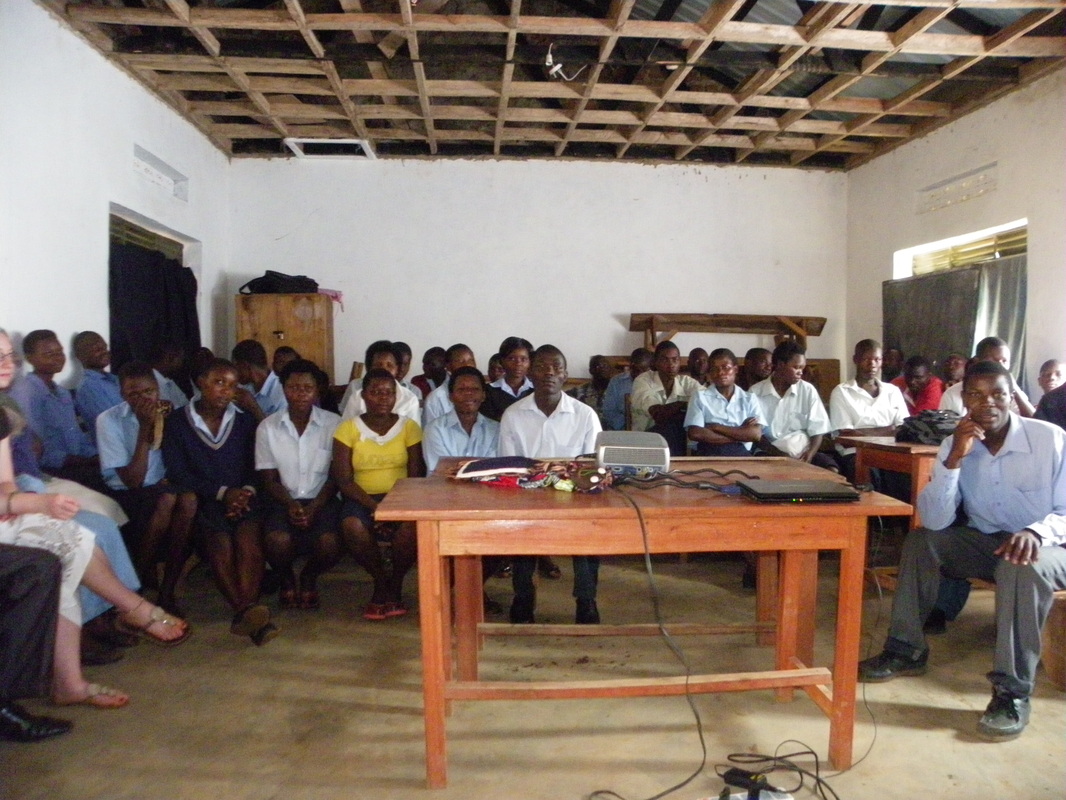
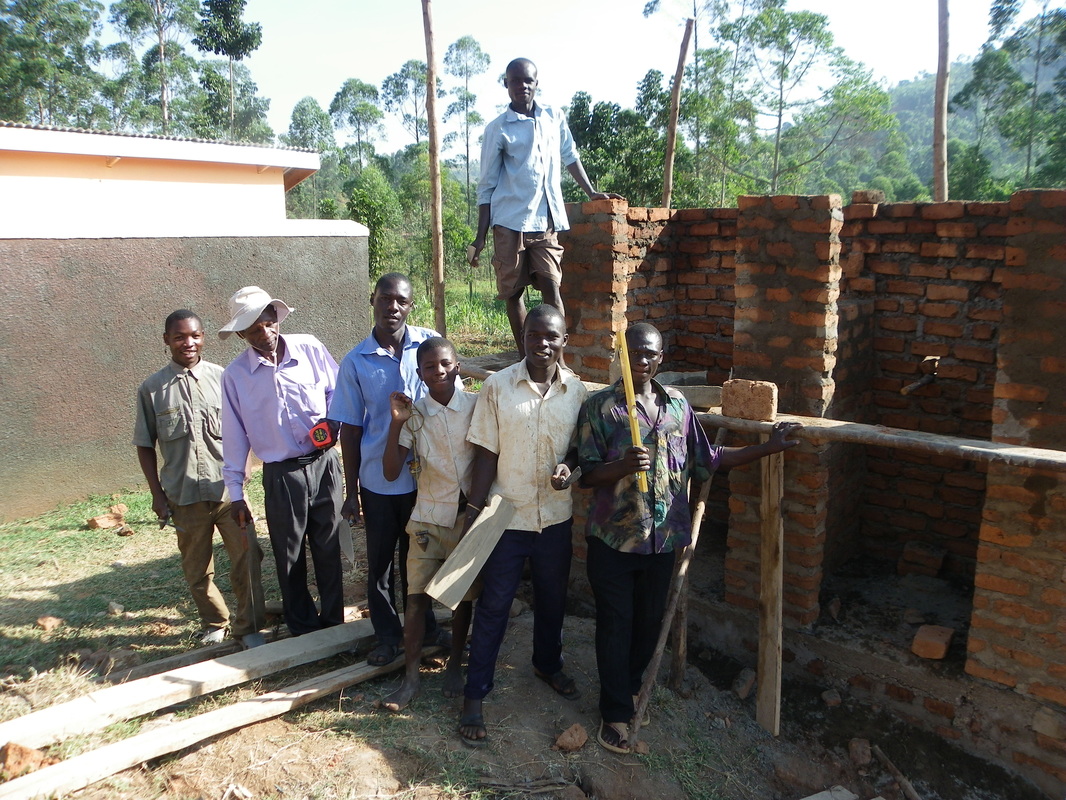
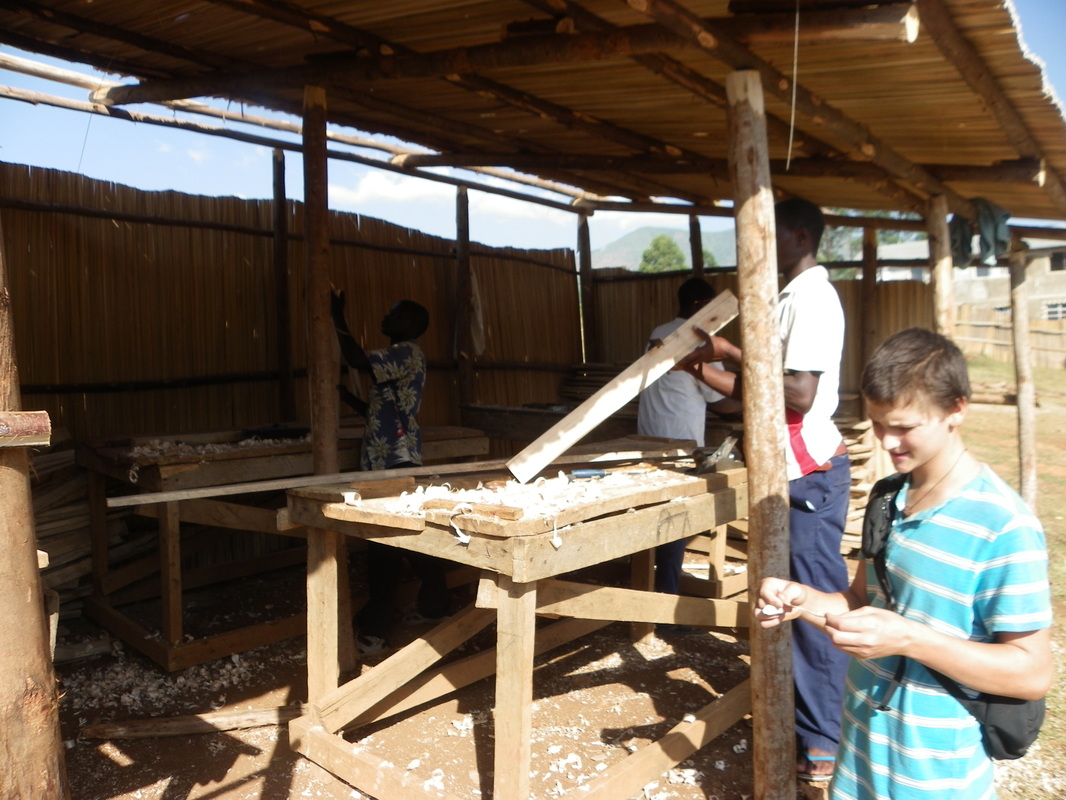
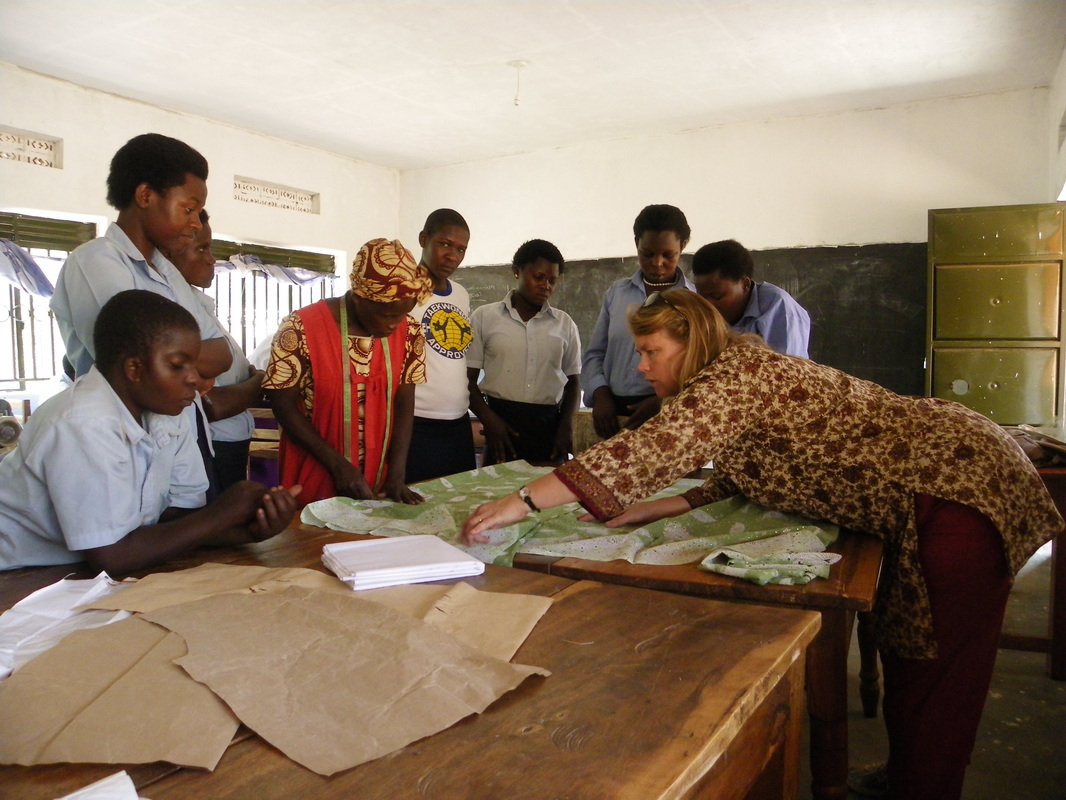
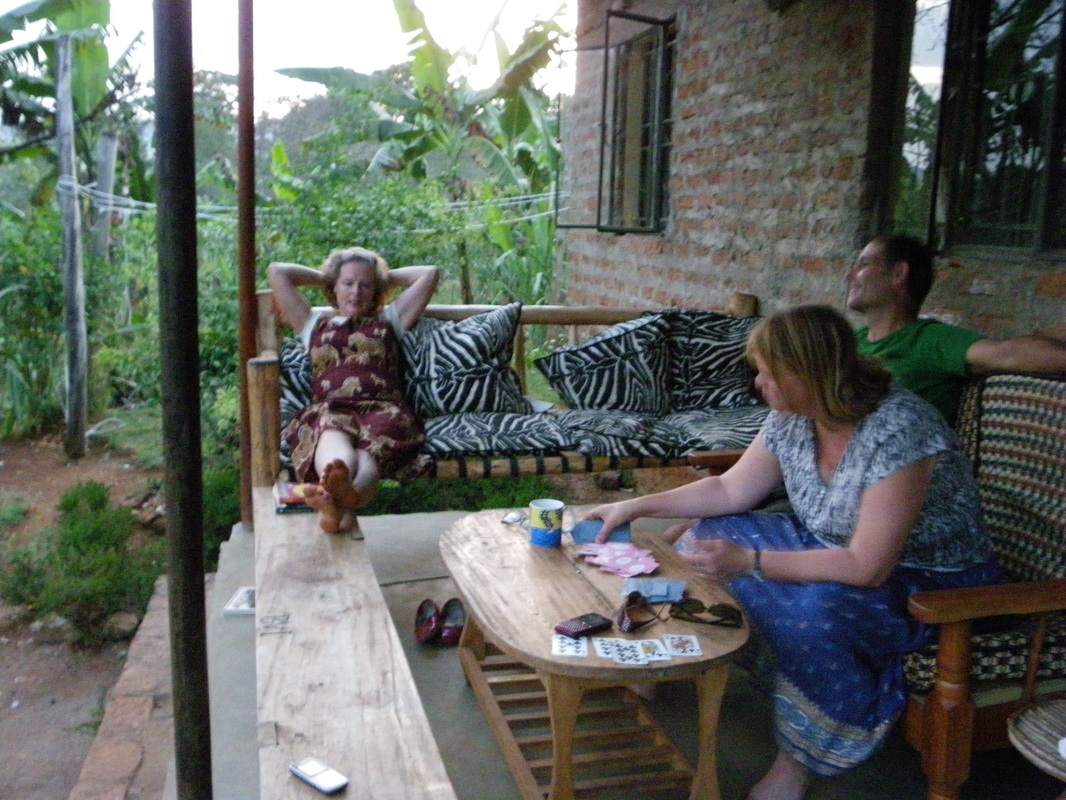
 RSS Feed
RSS Feed